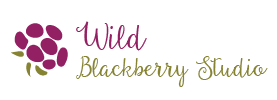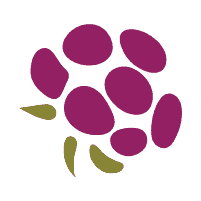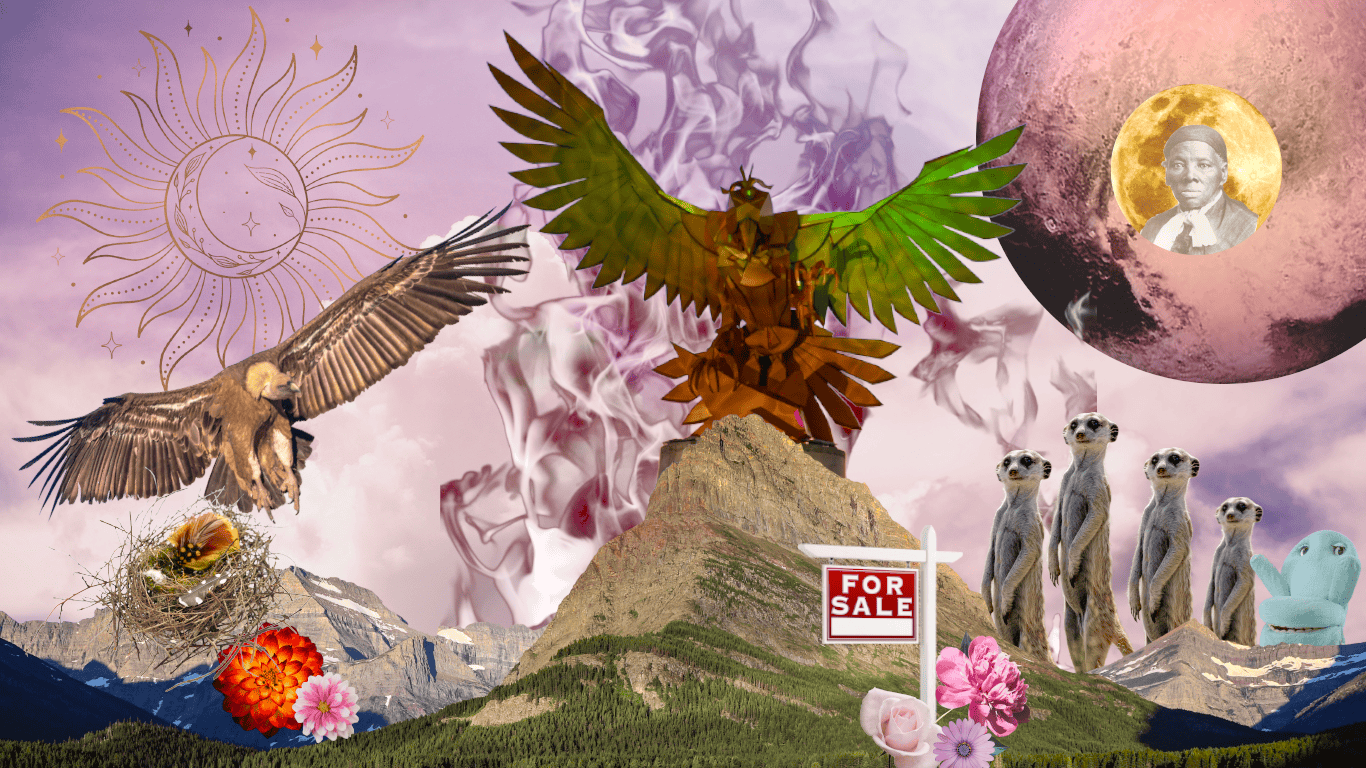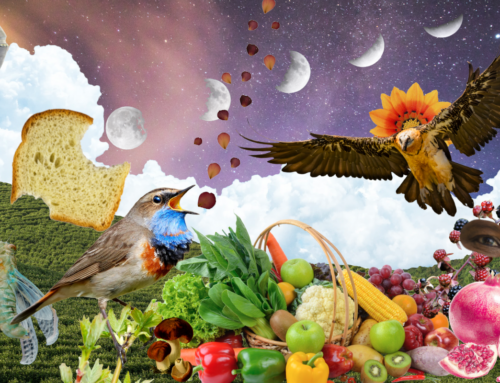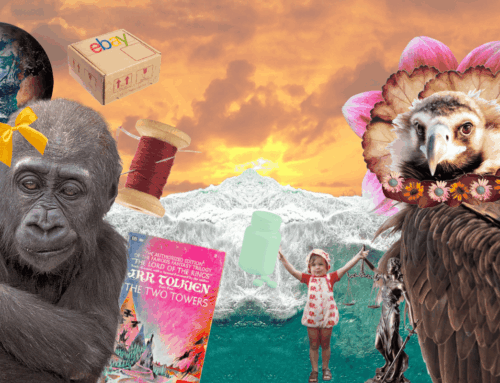
Kianga Ford on Art, Story, and Freedom
In this issue of The Vulture Chronicles, I talk with Kianga Ford, a creator, teacher, and visionary who embodies freedom as daily practice. From meerkat energy to phoenix cycles, she reminds us that creativity isn’t about polished outcomes but about paying attention together, letting what must die burn away, and leaving behind soft gifts for future nests. I’ve had the gift of her wisdom and been in L+FE programs since 2020. Can’t wait to share that with you.
Barbara:
Welcome to the High Perch. Creativity demands resilience, adaptation, and vision: qualities that vultures embody better than most. Today we’re speaking with Kianga Ford, a leader who knows how to navigate, change, and build what’s next? Kianga, welcome. Can you begin by giving us a little background about you and what it is that you are creating?
Kianga Ford:
Thank you. What is the background I would like to give about myself? I teach and embody wisdom for our time. What that is is constantly evolving. One of the places we’ve been sitting for some time is in the mastery of the principle of gender, which is the core understanding that there’s a masculine and a feminine to everything in manifest creation.
Barbara:
Thank you. So we’re gonna dive right into some fun questions. What’s something you never expected to get away with?
Kianga Ford:
Oh…well…you know, you never know the answers to these questions until you’re asked, and I think it’s being a black woman with the level of freedom that I claim in my life overall and day to day. I grew up with Harriet Tubman as one of my childhood idols and just was really fascinated by her. It was one of those things where I was like, oh look, the moss is on the north side of the tree and this is how we would get to freedom. I played Harriet Tubman in a school play when I was like eight. This visceral idea of what it is to lead with your own freedom was really formative for me. I’m having this conversation today from the Pyrenees Mountains, from the tiny independent nation of Andorra. So I’m having a very free life in a very free context, on a land that’s never known war.
It is a remarkable level of freedom to be able to choose and to be able to choose daily.
Barbara:
Awesome. Thank you. I need to sit with that for a minute.
If your creative process had some kind of an animal or spirit guide or creature, what would it be?
Kianga Ford:
Well, you know, it’s funny, it could be many, but I really like the meerkat. They just sort of hang out and watch the savannah. Everybody’s chill. But when one person’s is like “Uh oh, it’s time to look!”, then everybody’s like “Oh, okay–it’s time to look.” I really appreciate that kind of collective gaze.
I feel like we’re in a moment where we could use more meerkat energy.
Barbara:
Everyone’s doing the looking together.
Kianga Ford:
And you’re like, are we gonna run? Are we gonna jump on it? What? What are we gonna do? We don’t know yet. But right now what we do know is we have to focus the collective attention.
Barbara:
I love that. Okay, so we’re moving into the messy middle piece. What’s a piece of advice you love ignoring?
Kianga Ford:
Oh, I feel like I could write volumes on this. “Know the outcome before you begin.” “Sell from outcomes.” It actually gives me a bit of a histamine rash when I’m in contexts with the people who want to begin with an understanding of what the outcomes will be. Well, the feminine doesn’t work like that, so no, but I will invite you into a transformational process. How about that?
Barbara:
Can you tell me about a time when you thought a project was a disaster, but it turned into something great?
Kianga Ford:
My first response is everything I’ve ever touched. I thought that you were just describing my life experience. But you meant is there one particular thing? Well, here’s a thing that’s on my mind today specifically, which is, our school, as you know, is called Love and Freedom Education. We live into that in beautiful and expansive and abstract ways. But, recently, there has been a call to really support love in its on-the-ground incarnations and embodiment, including the search for partnership. Over time, we’ve worked with so many people who have come in with the primary motivating desire for love, a desire for partnership. I’m in touch with a lot of our alumni, and a lot of them still haven’t found that yet. They’ve gotten really clear on exactly what it is they want from it and how they want to show up for it, but they haven’t actually encountered it. It’s the same on both sides.
In the last few days, maybe 15 people have sent me this article from the New York Times–the men have gone away, where have they gone? We miss you men who used to exist in the world with us. I notice a kind of handwringing, a sadness or a kind of bell tolling for the state of affairs. But I think that there is a much larger catalyst galvanizing underneath the despair that’s asking us to look at what are the structures and the infrastructures that we create in this moment to make reconnection possible. What is actually needed?
Often it’s l the gloomiest things that are really motivating. After the last person that sent me that same article this morning, I was like, “fine, I’ll read it while I wait for the bus.” And my response was, “well, that was depressing, but not surprising.” By the time I was on my return trip, I had a sense of what we might offer into that void.
It was actually a great reminder, I think that the people that solve for connectivity, for true connectivity, for true connection, and not just technological connectivity, will own the next half century. Not “own” in any kind of pernicious way, but they’ll really get to chart the course of where humanity is going.
As you know, I really love to talk about Oprah. Let’s do my greatest hits here. Oprah became, at one point, the wealthiest woman in the world. And what did she offer the world that allowed her to do that? She offered compassionate curiosity in a moment when we didn’t know that’s what we were missing collectively. So there’s another window of possibility opening, and I think smart people will be asking “what is the compassionate curiosity of our time?” It’s not all about the tech bells and whistles and the AI forecasts. What we’re really looking for is something deeper than that and something that needs to be either quieter than (which is usually my inclination) or louder than all the noise of technological connectivity. What is that? That’s a billion dollar question.
Long answer.
Barbara:
It is a big question. Thank you. I think it particularly lands with me that the time when you thought something was a disaster and it turned out great is kind of like that’s the whole project of life.
Kianga Ford:
In all its senses, right? In our version of L+FE, which is Love and Freedom Education, but also the living of the life, which is what we’re on the path for. So yes, stay tuned…
We got this. It looks dire, but it’s actually a great opportunity.
Barbara:
More downloads to come. What is something that you’ve let die in a good way to make space for something better?
Kianga Ford:
This is another life theme song of mine, right? So the answer to the spirit animal, if we’re really gonna be honest with each other and all of our readers/listeners, is the phoenix, because I am a let-it-die kind of girl . When in doubt, let’s burn it to the ground and see what comes next. So I’ve had many career iterations, and I have allowed all of those to burn in their own cycle.
I was an artist at one point. We let that die. I was an academic at one point. We let that die. But those have just been the iterations or the frameworks. I guess it’s the frames that die, but the questions live on, and they just take us someplace new, into new terrain to consider them.
Barbara:
Okay, so now we’re moving into “scavenging for the unexpected.” What’s the weirdest inspiration you’ve ever pulled into your work?
Kianga Ford:
That is a good and interesting question. I think PeeWee’s Playhouse is the best thing ever. So when we get a spontaneous word of the day, like Eudaimonia or whatever this new word for us is, the chair’s talking and the plants are clapping, and we’re like, yay!
Barbara:
That’s fantastic. I’m getting a really nice visual for the collage that is gonna go with this discussion. If you could scavenge a skill, talent, or idea from anyone, what would you grab?
Kianga Ford:
Oh, I know this one isn’t going to sound all that wisdomy to me, but raising ethical capital at scale. Raising capital at scale in a way that is sustainable and values aligned, I think is like a wicked and very catalyzing skill if you can have it.
Barbara:
Mm-hmm.
Kianga Ford:
I have just been listening to the memoir of the four guys that created the community that I just went to an event with– Summit–and they talk about buying this 10,000 acre mountain. And if you know me, you know, I love the idea of feminine stewardship and buying some lands on the planet where we can birth new ideas. So I’m all about these guys that both figured out how to buy a mountain, but also not to take traditional financing to do it, and to be able to navigate around the kind of traditional strictures that would force you to extract from the thing that you’re building. Most traditional financing models would require you to squeeze the community you’re creating rather than letting it live and breathe.
So maybe it’s more like being able to see *and realize* new models for financing visionary ideas. If I could have any skill, this would be the one in this moment.
Barbara:
Yeah, that’s so interesting. ’cause there is a version of that acquiring capital that feels like it requires you to sell the soul of the thing you’re actually trying to create.
Kianga Ford:
Mm-hmm. And so how do we create what’s not that? It is actually to go a little deeper in the energetics of it. It sounds like not wisdom, but it actually is wisdom to be able to hold and grow the energetic support of the thing that you want to create, at scale in a way that is so impactful that it shifts the paradigms that it emerges out of.
Barbara:
Thank you. I like this question. Where in your life do you feel most creative?
Kianga Ford:
Are pajamas a where? As in, in my pajamas. I really love them. I wear them a lot. Other than that, I would say in the world. I love to be in the world.
Today, I took a bus down to central Andorra. I’ve had the luxury of having a car for most of the summer, so I haven’t needed to do that. The mechanic is servicing it today and I was like–I have errands to run, so I’m gonna take the bus.
I saw so many things on the bus that I hadn’t been seeing as a driver, and, so, even though I’ve been driving the same routes for the last few months, there is this being in the world of the fresh and new that’s possible every day, regardless of where I am or how long I’ve been there.
Barbara:
Lovely. Thank you. Coming in for a landing here, if you could leave a feather or a small gift for future creators, what would it be?
Kianga Ford:
Well, one of the practical gifts that I leave outside for natural creators is my dog’s fur, because she’s very furry and she can leave behind a lot of it. She’s not a shedder, but she needs to be brushed. A few years ago I learned that birds really love that. And she’s got especially soft fur. Lest you think we’ve just gone over the edge of this conversation. I think there’s something like that that is possible in every interaction with new communities. Leave some fluff; leave some spaciousness; leave something that people can lean into, that they can go back and build their own nests and ideas with. Leave some dog fur behind.
Barbara:
The soft kind, the soft, cuddly kind, nice. What’s something delightfully unhinged about your creative process that you hope never changes?
Kianga Ford:
That it’s entirely led by something far beyond me. So just when I think I’m getting good at whatever it is I’m up to, the assignment will change. First, I’m like– doh! I was just starting to figure this out and then I can relax into– okay, fine, I will lean into the next continent, the next project, the next industry, the next context, whatever that is, that allows me to keep learning about and deepening into the wisdom that’s emergent.
Barbara:
Thank you. Okay, so is there anything else you’re feeling that you would like to say to readers, it’s okay if, if the answer’s no, I just like to give some space before I do my outro.
Kianga Ford:
Well, we think this is really fun, this way to live and engage life. We enjoy being really present in every day and also following the unexpected call and letting the things burn down and figuring out how to scale and figuring out how to share and co-influencing along with co-creating. It’s a really good way to incarnate, good work if you can get it. That’s what I’ll leave us with.
Barbara:
Okay, fantastic. Thank you.
Creation isn’t clean. It’s a glorious scavenger hunt. And today, Kianga Ford showed us just how much beauty there is to find. Stay sharp, stay weird, keep circling. Until next time, I’m Barbara Evans, Brand Vulture, and this has been the Vulture Chronicles.
Barbara (closing):
Creation isn't clean.
It's a glorious scavenger hunt.
And today, Diazina Mobley showed us just how much beauty there is to find.
Stay sharp. Stay weird. Keep circling.
Until next time, I'm Barbara Evans — Brand Vulture —
and this has been the Vulture Chronicles.
P.S. Want to Learn More About Kianga’s Work?
Kianga Ford is the founder of Love and Freedom Education (L+FE), a living school dedicated to exploring wisdom for our time. L+FE creates spaces where love and freedom become real, embodied practices—supporting people to move beyond co-administration and into true partnership, creativity, and service.
Through programs like Legacy Partnership (for committed couples re-imagining what love can incubate for humanity) and A Year of Love (a year-long journey of spiritual growth, feminine/masculine integration, and community connection), Kianga invites people into transformational processes that honor freedom, foster deep reconnection, and spark collective possibility.
Learn more at loveandfreedomeducation.com or follow @loveandfreedomeducation for windows into the daily practice of living into love and freedom.
